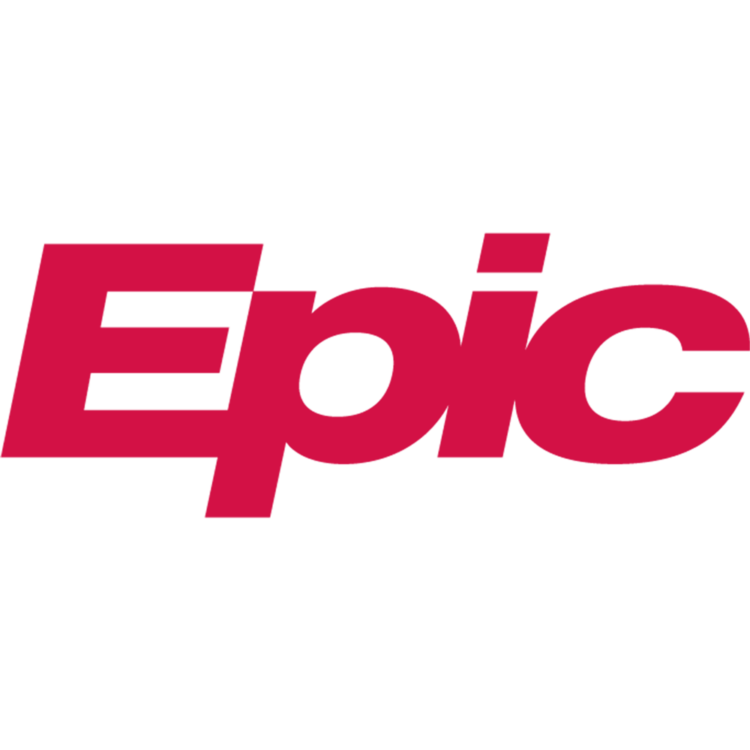Epic EMR and EHR System Review (2024)

Epic is a leading EHR system primarily used by hospitals and medical service providers.
It offers a comprehensive medical charting system that includes medical templates and patient scheduling, facilitating a unified health record for every patient.
Epic's software integrates various health experiences to ensure continuous and coherent healthcare delivery across different settings.
Epic Features
Epic Systems is a leading provider of EMR (Electronic Medical Records) and EHR (Electronic Health Records) software, renowned for its comprehensive solutions that cater to large hospitals and healthcare systems. Here are the main features of the Epic EMR system:
- Comprehensive Patient Records: Epic's system allows for a unified, comprehensive view of a patient’s history, treatment, and interactions across all healthcare settings, ensuring continuity and quality of care.
- MyChart Patient Portal: Offers patients secure, online access to their health information, facilitating communication with providers, appointment scheduling, and access to test results, thus enhancing patient engagement and self-management.
- Mobile Accessibility: Epic provides apps for both iOS and Android, allowing both patients and healthcare providers to access records and manage care on the go.
- Interoperability: Epic supports seamless data exchange between different healthcare providers and systems, which is crucial for coordinated care and health information technology integration.
- Data Security and Privacy: Epic is designed with strong data protection measures to secure patient information and comply with healthcare regulations.
- Analytics and Reporting: The system offers robust analytics tools that help healthcare providers improve operational efficiency, patient care, and funding management.
These features collectively enhance the capability of medical service providers to deliver efficient, patient-centered care and improve the overall efficiency of healthcare operations through advanced health information technology.
Epic Pros and Cons
Epic, as a leading EHR solution, has several advantages and disadvantages that impact healthcare organizations.
Pros
- Efficiency and Accessibility: Epic allows for the electronic sending of medication orders directly to pharmacies, which streamlines the process and saves considerable time.
- Comprehensive Integration: Supports advanced alternative payment models, facilitating better healthcare funding and reimbursement strategies.
- Widespread Compatibility: Compatible with a vast array of health systems and devices, enhancing usability across different healthcare environments.
Cons
- High Costs: The implementation of Epic can be expensive, with significant upfront costs that might include charges for software licensing, installation, and initial training. The ongoing yearly cost can also be a financial burden for some facilities.
- Complexity in Implementation: Deploying Epic requires substantial training and change management, which can be resource-intensive and disruptive in the short term.
- Scalability Challenges: Smaller medical practices may find the system too complex and not cost-effective due to high ehr costs and service costs, making it more suitable for larger institutions.
These factors must be carefully considered by healthcare providers when evaluating Epic as an ehr solution for their organization
When Epic is a good choice?
Epic is a good choice for large healthcare organizations that require comprehensive solutions for organizing patient data and medical history efficiently.
Its robust system supports complex needs such as Epic implementation and streamlining medical record accessibility.
While the initial and training costs can be high, the total cost of ownership is often justified by the long-term benefits in improved patient care and operational efficiency.
Epic's infrastructure also potentially reduces maintenance and services costs due to its integrated nature, making it a cost-effective solution over time for large-scale health facilities.
What are the alternatives to Epic?
Alternatives to Epic software for community-based healthcare providers seeking a new EMR system include Cerner, Athenahealth, and eClinicalWorks.
These systems offer varied functionalities suitable for different healthcare settings.
Cerner is renowned for its comprehensive health records integration, Athenahealth is favored for its cloud-based services that enhance accessibility and collaboration, and eClinicalWorks provides robust practice management features and telehealth solutions.
These alternatives cater to a range of medical service needs, from large hospitals to small clinics, providing flexibility in managing patient data and healthcare delivery
Is Epic difficult to learn?
Epic, a prominent EMR software, is known for its complexity and steep learning curve.
The system requires extensive training due to its comprehensive functionality and the vast amounts of patient data it handles.
The certification process to fully operate Epic is challenging, which can be a significant barrier for some users, especially those not familiar with advanced alternative payment models and intricate healthcare software systems.
However, its depth allows for detailed patient management and integration with various healthcare payment models, making it a powerful tool for large healthcare providers

